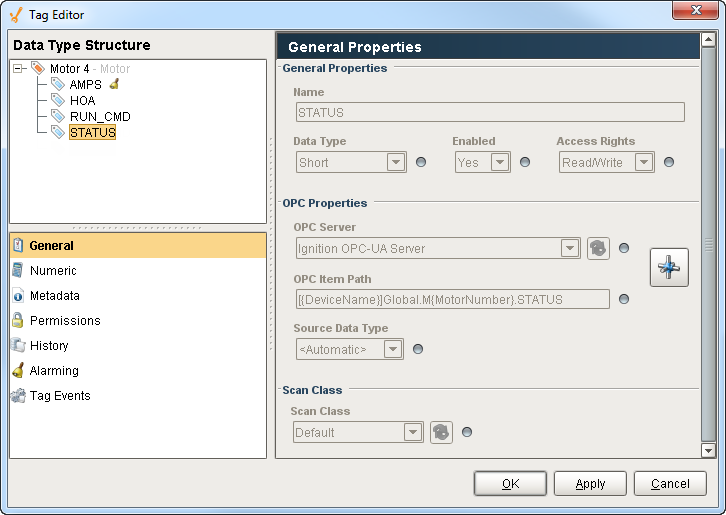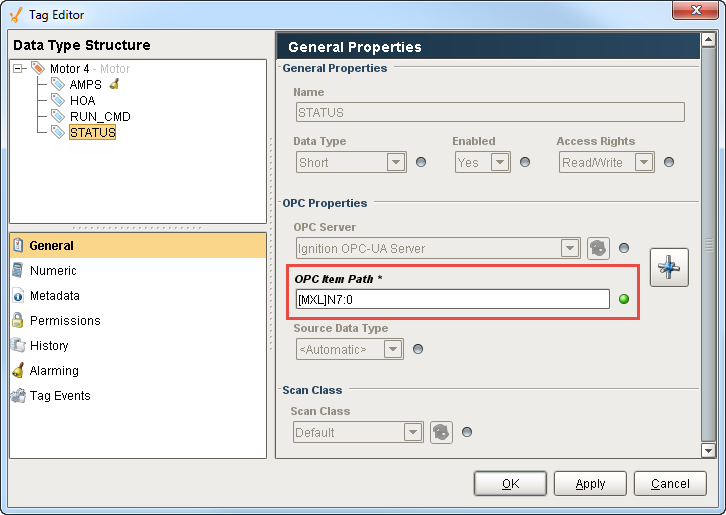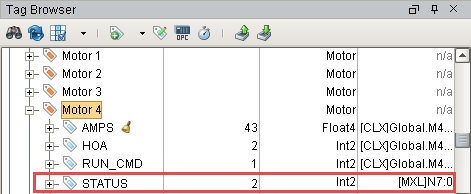Overriding Properties in UDT Instances
It is possible to override properties of a UDT instance to create a different base structure as compared to other instances of the same data type. This is an important feature in certain scenarios where you have to be able to override parts of the configuration of that instance. For example, you may have to create an instance of a UDT that uses a completely different OPC address scheme from the definition.
To Override the Properties
All the instances of the same data type definition have the same configuration, but when there is an instance which needs to have a different value from the rest of them, you can override that value. Let's say we want to override the OPC Item Path property of the STATUS Tag of the Motor 4 instance.
-
From the Tag Browser, you would go to Tags > Data Types, right-click on Motor 4, then select Edit tag(s).
The Tag Editor window will open. -
Under Data Type Structure, select the STATUS Tag.
You can see that none of the fields are disabled so you can't make any changes to them.
-
Look for the circle to the right of the OPC Item Path box and click it so you can highlight this box.
The circle changes its color to green and the field becomes enabled allowing you to override the OPC Item Path inherited from the parent. -
Edit the OPC Item Path, and click OK.

-
Go to the Tag Browser, click on the Column selection icon on the toolbar, and select the box for OPC Item Path.
See your changes in the column that displays the value of the OPC Item Path.
-
To go back to the original configuration, you can unclick the green circle next to the OPC Item Path.
If you change the UDT definition on a field that was overwritten
It's important to note, that if you make a change to the definition on a particular field that was overwritten, it will not update on that particular instance. That particular instance is locked in at that override unless you go back to your Tag and remove the override by clicking the green circle.
Similar Topics ...